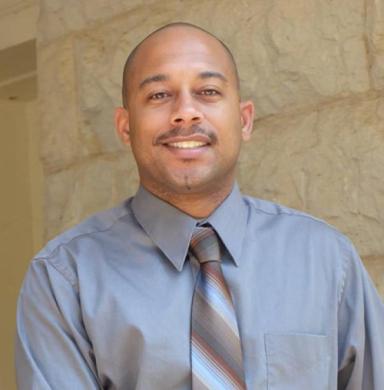Designing a Critical Race and Ethnic Studies Major
Reggie Byron attributes growing up in Bronx, New York, “the site of both multiethnic splendor and systemic racial inequality,” with instilling an interest in critical race and ethnic studies and igniting a passion for “being the change.”
Trained as a sociologist, Byron has taught a variety of sociology, criminology, psychology and methodology courses aimed at increasing diversity and inclusion at several universities including Southwestern University, where he taught for 13 years and led efforts “to enhance inclusive pedagogies and improve the larger campus climate.”
In fall quarter 2022, he began serving as an associate professor in DU’s Department of Sociology and Criminology and was jointly-appointed as Critical Race and Ethnic Studies (CRES) program director to begin designing a new CRES major.
“Right now, organizations of all types are coping with their racially problematic histories, injustices against APIDA (Asian, Pacific Islander, Desi American), Black, Hispanic and Indigenous people persist at both policy and individual levels and scholars denote a troubling rise of ‘new old-fashioned racism,’” Byron said. “And yet a national movement attacks the very ideas [e.g. critical race theory] that are designed to expose the systemic and structural durability of such racial inequality. What better time could there be to leave my mark by helping to build a program that is so urgently needed?”
To that end, Byron has been gathering feedback about the current CRES minor, reviewing curricula at similar programs to brainstorm a curriculum for the eventual major at DU, working to hire permanent CRES faculty members, recruiting students, co-hosting campus events and collaborating with partners campuswide.
Critical race and ethnic studies is an interdisciplinary field that analyzes race and ethnicity as social constructions, meaning that the definitions of who falls into which racial and ethnic category changes over time and across place. The field explores how definitions of race and ethnicity are constructed and produces research aimed at creating meaningful change in people’s lived experiences.
The new CRES major will provide a more structured, sequenced progression of critically rigorous courses leading to a bachelor’s degree. Byron’s three-pronged approach to developing the CRES major focuses on research, activism and philanthropy (RAP).
The research component includes designing methods-oriented courses with opportunities to engage in racial justice work and culminating in a senior research project. The activism element emphasizes internships with community organizations.
“We’re really going to push for internships with community organizations dedicated to social justice work,” Byron said. “Hopefully that activism will open up opportunities for extracurricular work that could help students apply for grad school or future employment.”
Finally, philanthropy refers to finding ways to raise funds or volunteer time to support DU initiatives and local nonprofits in whatever ways these partners see fit.
Byron has been visiting first-year seminars throughout CAHSS to spread the word about the current CRES minor and upcoming major and to explain how CRES education can help students in their postgraduate career and educational pursuits. These efforts have already contributed to a 20% increase in the number of CRES minors.
“Many organizations are focused on DEI and making their workplace populations more closely reflect the larger populations pertaining to race and ethnicity,” Byron said. “CRES courses germinate ideas about how to make workplaces more inclusive and provide advanced knowledge on the many systems that serve as obstacles to workplace diversity.”
Byron, a consultant to private-sector companies on the side, hopes to channel what he’s learned into developing an applied class that provides students with a consulting-type experience aimed at discussing the tools and information organizations need to make their social justice goals a reality.
“Students sometimes think this is limited to academia,” Byron said. “But government, business, nonprofits and arts organizations are all working toward this.”
He calls the CRES major the “wave of the future” because having a knowledge base to both understand and disrupt institutional inertia regarding diversity can positively impact more than just the bottom line.
A growing number of studies, for example, suggest that inherent [race, gender, ethnicity etc.] and acquired [living in a foreign country] diversity increases workplace innovation and other forms of racial and ethnic diversity are related to increases in worker productivity and creative problem solving, therefore yielding benefits for workers and organizations alike.



